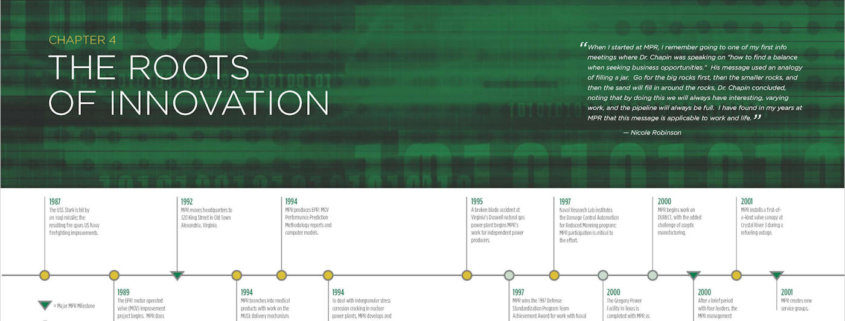Building Your Brand with Corporate History
It is tempting to think that you can define your corporate personality—to build your brand—out of little more than public relations and advertising. In fact, a corporate personality is something that develops over time, the result of months or years of hard work, employee relations, and customer communications.
To understand that corporate personality is to make sense of a complex past; to uncover the story of how the brand grew and developed, guided by both internal initiatives and external factors. The best way to do this is through history—pulling from written, visual, and remembered records to create a coherent narrative that explains how the brand developed and conveys what the brand can bring to customers in the future. Whether leveraged in a book, an exhibit, or a digital history, the cost of a high-quality history project can be comparable to that of a public relations or advertising campaign, but when you compare the impact, an investment in a powerful, authentic brand equity can be a bargain. Moreover, the research you do and the interviews that you capture will be an invaluable corporate resource, otherwise lost, for generations to come.
Consider the optics. The typical “About” page on many corporate websites contain a few fragments of origin lore, generalizations about the intervening decades, and unsupported claims about the company’s “mission” and “commitment.” If you spare no expense to ensure that your products are faultless and your services are expert, why cut corners with your story?
Beyond external appearance is the matter of internal integrity. If your employees do not know how your company came to do what it does, then the entirety of your organization is unlikely to succeed. A compelling corporate story serves as a foundation upon which a strong corporate culture can rest.
But it is in terms of strategy that an investment in history earns its greatest returns. Respect for an organization’s history, and evidence of a commitment to honor that past drives most successful companies forward. When you honor your heritage, you not only provide employees with a sense of mission, you reassure customers of your intention and commitment to your business. History is the ballast that keeps a company upright through the tumult of changing technologies and transforming markets. For a company that has weathered tough times, the value of the lessons learned is tremendous—and incorporating those lessons into the corporate culture is something for which history is well suited.
Nearly every enterprise is the product of a complex history. Telling your corporate history presents an opportunity, if not an obligation, for building your brand with corporate history to show how your company intends to live up to its past in the future.



 Public
Public



